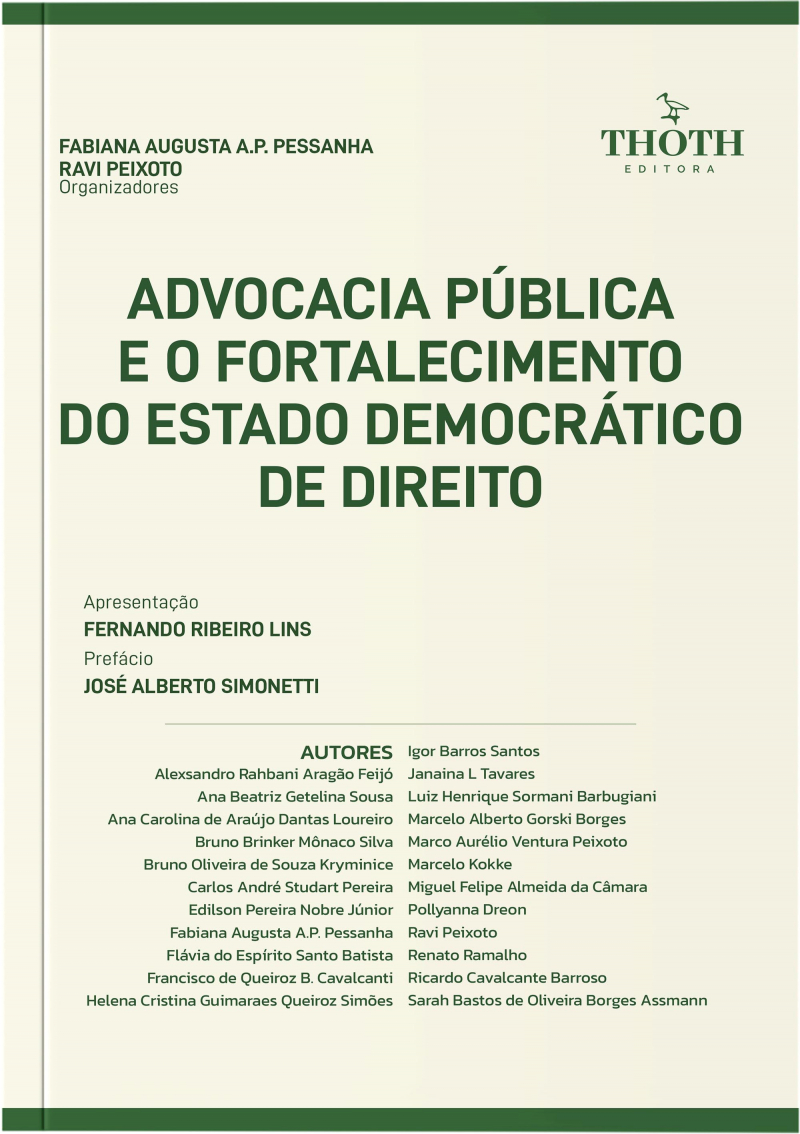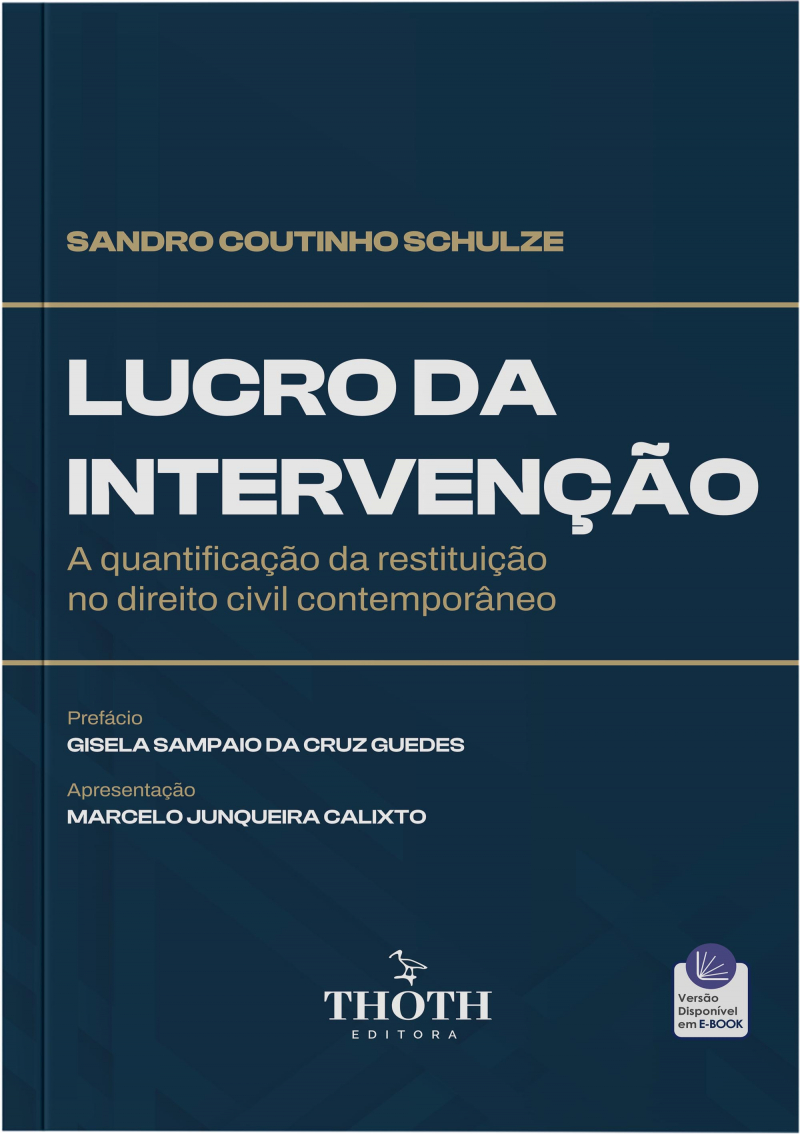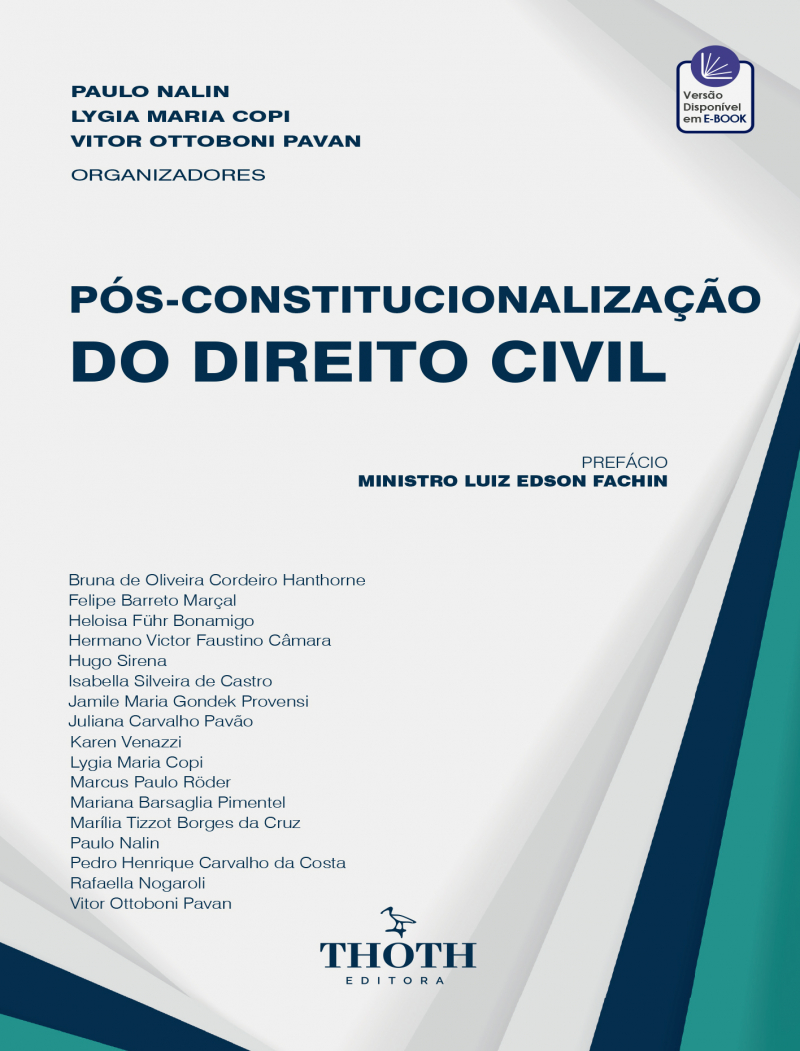ISBN: 978-65-5113-244-5
IDIOMA: Inglês
NÚMERO DE PÁGINAS: 258
NÚMERO DA EDIÇÃO: 1
DATA DE PUBLICAÇÃO: 17/07/2025
The Brazilian procedural system is facing a crisis, making it essential to structure management solutions to address the difficulties of providing equitable, efficient, effective and timely jurisdiction in the face of the scattering of disputes, in order to reorganize the judicial structures so that they can improve their performance, reconfiguring their role as harmonizer of social relations. In this scenario, the aggregation of rights emerges as a management technique that can serve as an escape valve to the current obstacles to the single solution applied to multiple cases based on the pan-proceduralist view in conjunction with economic instruments, seeking to solve the tragedy of justice and the harmfulness of access to law in various aspects of the judicial system.
PUCRS Collection Boards
About the Author
Acknowledgements
Presentation
Presentation 2
Foreword
Introduction
Chapter 1
The Importance of Process Management
1.1 The contemporary process crisis
1.1.1 Procedural guarantees and the tragedy of justice
1.1.2 The prejudiciality of access to rights
1.2 Process management as a possible alternative
1.2.1 Management of conflict and judicial structures
1.2.2 Management of cost, time and multiple cases
1.2.3 Court management in relation to case flow
1.3 Process management parameters
1.3.1 Effectiveness and efficiency
1.3.2 Reasonable duration of the process
1.3.3 Proportionality
Chapter 2
The Aggregation of Rights as a Management Technique
2.1 The problem of pulverization of repetitive individual litigations
2.1.1 The search for observance of isonomy and legal security from a pan-proceduralist perspective
2.1.2 The administration of justice as an organizational factor: economic instruments for aggregation
2.2 The aggregation of rights as a management strategy in comparative perspective
2.2.1 The influence of foreign legal systems on contemporary collective process systems
2.2.1.1 England
2.2.1.2United States of America
2.2.1.3 Germany
2.2.1.4 Portugal
2.2.2 The search for a single resolution applied to multiple cases of equal rights: alternative solution for so-called small claims
2.3 About collective protection of rights and the protection of collective rights
2.3.1 Evolution of the collective process for the Brazilian legal system: the protection of essentially collective rights and individual rights subject to procedural aggregation
2.3.2 Brazilian panorama on Homogeneous Individual Rights
2.3.3 Collective actions and partial collectivization techniques
2.3.3.1 Public Civil Action and Repetitive Demand Resolution Incident as Brazilian milestones for collective dispute resolution
2.3.3.2 Accurate observation of the concepts of opt out and opt in as decision-making factors in collective processes
Chapter 3
Aggregate Litigation Techniques: Needs and Possibilities for Applicability in Brazil
3.1 Aggregation of rights in the formation of new possibilities for conflict resolution
3.1.1 Contributions on aggregate litigation techniques on US soil: view specified from class actions
3.1.1.1 Peculiarities of Aggregate Litigation
3.1.1.2 Functioning of Multidistrict Litigation as an American reference exemplary of the application of Aggregate Litigation
3.1.2 Aggregation of rights on Brazilian soil
3.1.2.1 National cooperation and its analysis of procedural indispensability
3.1.2.2 Possibility of concertation of acts
3.1.2.3 Collectivization of evidence and centralization of repetitive processes: paradigm aggregation techniques
3.2 Adequate representation as a central challenge of the aggregate litigation
3.2.1 What is meant by adequate representation in the national legal system
3.2.2 Adequacy of Representation and American origin
3.2.3 Adequate representation in Brazil as a challenge in the face of the aggregation of rights
3.2.3.1 Adequate representation as an element of legitimacy
3.2.3.2 Judicial control of adequate representation
Final Considerations
References


-(19)_606e0fb76bb423_57233891.jpg)





